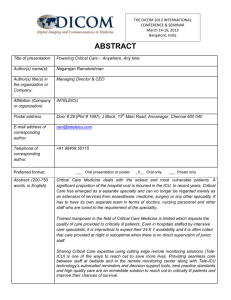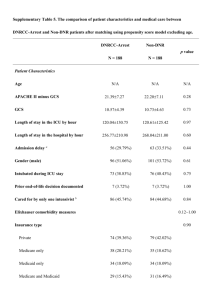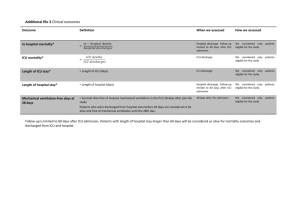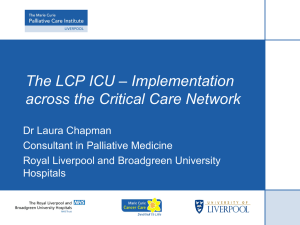eTable 1. Interview Guide- Questions and Prompts How often do you
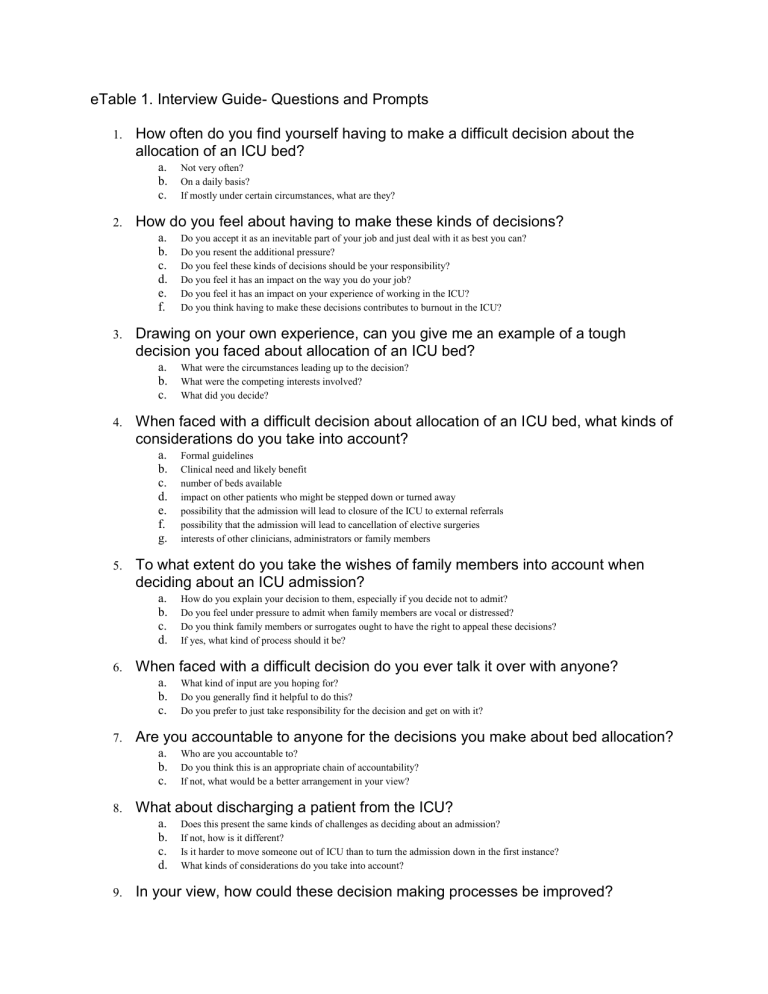
eTable 1. Interview Guide- Questions and Prompts
1.
How often do you find yourself having to make a difficult decision about the
2.
3.
4.
allocation of an ICU bed? a.
Not very often? b.
On a daily basis? c.
If mostly under certain circumstances, what are they?
How do you feel about having to make these kinds of decisions? a.
Do you accept it as an inevitable part of your job and just deal with it as best you can? b.
Do you resent the additional pressure? c.
Do you feel these kinds of decisions should be your responsibility? d.
Do you feel it has an impact on the way you do your job? e.
Do you feel it has an impact on your experience of working in the ICU? f.
Do you think having to make these decisions contributes to burnout in the ICU?
Drawing on your own experience, can you give me an example of a tough decision you faced about allocation of an ICU bed? a.
What were the circumstances leading up to the decision? b.
What were the competing interests involved? c.
What did you decide?
When faced with a difficult decision about allocation of an ICU bed, what kinds of
5.
6.
7.
considerations do you take into account? a.
Formal guidelines b.
Clinical need and likely benefit c.
number of beds available d.
impact on other patients who might be stepped down or turned away e.
possibility that the admission will lead to closure of the ICU to external referrals f.
possibility that the admission will lead to cancellation of elective surgeries g.
interests of other clinicians, administrators or family members
To what extent do you take the wishes of family members into account when deciding about an ICU admission? a.
How do you explain your decision to them, especially if you decide not to admit? b.
Do you feel under pressure to admit when family members are vocal or distressed? c.
Do you think family members or surrogates ought to have the right to appeal these decisions? d.
If yes, what kind of process should it be?
When faced with a difficult decision do you ever talk it over with anyone? a.
What kind of input are you hoping for? b.
Do you generally find it helpful to do this? c.
Do you prefer to just take responsibility for the decision and get on with it?
Are you accountable to anyone for the decisions you make about bed allocation? a.
Who are you accountable to? b.
Do you think this is an appropriate chain of accountability? c.
If not, what would be a better arrangement in your view?
8.
9.
What about discharging a patient from the ICU? a.
Does this present the same kinds of challenges as deciding about an admission? b.
If not, how is it different? c.
Is it harder to move someone out of ICU than to turn the admission down in the first instance? d.
What kinds of considerations do you take into account?
In your view, how could these decision making processes be improved?
10.
a.
Is there any kind of support, information or training that would be helpful? b.
Would you like a set of guidelines other than the ones currently available to you?
Is there anything else about your experience of decision making about bed allocation that I haven’t asked you about that is important to you?
